TESTING SERVICES
eNtsa testing services, focus on providing professional testing services in the field of mechanical testing, material analysis, environmental performance and failure investigation.
The eNtsa testing facility provides SANAS accredited Mechanical testing services in accordance with ISO17025 : 2017
Mechanical Testing Capabilities
Hardness
| Capability | Details/Specifications |
| Rockwell Hardness | • Rockwell A |
| Macro Vickers Hardness | • 0.2, 0.5, 1, 3, 5, 10 & 30 kgf loads available |
| Micro Vickers Hardness | • 0.01 – 50 kgf loads possible (Load Cell |
Mechanical Testing Capabilities Hardness
| Capability | Details/Specifications |
| Brinell Hardness | • 2.5, 5 & 10 mm tungsten indenters • 187.5, 250, 500, 750, 1000, 1500, 30000 kfg loads • Specifications include: ASTM E10 (accredited) |
| Portable Hardness Testing | • Leeb D • UCI (Ultrasonic Contact Impedance) • Minimum sample mass of 5kg and thickness of 3mm |
Fatigue Testing
Capability | Details/Specifications |
Resonance Fatigue Testing (Vibrophore 250) | • The system functions on the principal of oscillating a part or sample at its resonant frequency. Mean load max. ±250kN • Test Frequency Range 30 … 285 Hz |
Servo Hydraulic Fatigue testing | • 25 kN & 100kN calibrated load cells available |
Light Microscopes
Capability | Details/Specifications |
Digital optical microscope | • Measurement of: • Weld analysis • Coatings • Defects, porosity • Grain size • Metallographic inspection • Macrographs (automatic stitching) • Bright field, dark field, polarised and DIC lighting options available. • Fully computerised measurement capabilities • 5x, 10x, 20x and 50x objective lenses available |
Optical inverted Microscope & Stereo optical Microscope | • 5x, 10x 20x 50x & 100x objective lenses • Calibrated measurements of micrographs |
Tensile, Compression, Bend Testing
Capability | Details/Specifications |
Universal tensile/compression testing (Instrumented) | • Test at room temperature • 0.2% Yield, % Elongation, UTS • 1N – 150kN load range (Calibrated) • Extensometer for accurate stress-strain measurement and Yield Strength • Load, force or displacement control • Specifications include: ASTM E8/E8M (accredited) |
Tensile Tester (Not instrumented) | • 500kN load (analogue) |
Impact Testing
Capability | Details/Specifications |
Instrumented Impact Tester (Metallic) | • Pendulum impact tester • 150J & 450J hammers available • 40mm support gap for standard Charpy specimens • -50°C to room temp • Specifications include: ISO148-1 |
Impact Tester (Plastics and Composites) | • Pendulum impact tester • 2.5J & 7.5J hammers available • 60mm support gap • Specifications include: ISO179-1 |
Chemical Analysis
Capability | Details/Specifications |
Energy-dispersive X-ray spectroscopy (EDS, EDX, EDXS) | • Elemental analysis / Chemical characterisation • High magnification particle/point/map analysis • Various analysis capabilities: • Fracture surface / Failures • Contamination • Electro-Coating (Surface coverage & cross section) • Machining surface • Electronics |
Spectrometer (Spark Optical Emission Spectroscopy) | • Chemical analysis for determination of: C, Si, Mn, P, S, Cr, Ni, Mo, Al, Cu, Ti, Nb, V, W, Pb, B, Sb, Sn, Zn, As, Bi, Ta, Ca, Ce, Zr, La, Fe, N & Se by OES • Ferrous, aluminium & copper bases available |
X-Ray Fluorescence (XRF) | • Portable, handheld device • Elemental analyses • Material sorting |
Failure Investigation
Types of failure analysis performed: • Failure mode analysis • Fracture Surface • Material conformity • Mechanical • Chemical • Metallurgical • Simulation based analysis • Finite Element Analysis • Static/Dynamic loading • Failure site • Strain measurement • Residual stress measurement • Inspection | Why Perform failure analysis? • Identify root cause • Treat the cause and not the symptom • Correctly determine responsibility/liability • Mitigate Safety concerns • Improve Productivity • Quality Conformance |


